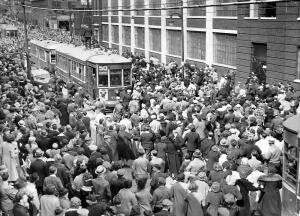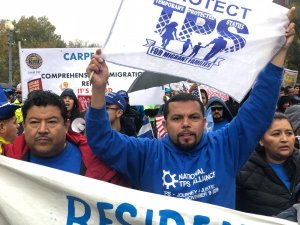2023 Annual Meeting
2023 LAWCHA Conference
Class in Everyday Life
Theory and Praxis
2023 LAWCHA Conference
Call for Papers
Deadline: October 31, 2022
Our theme, “Class in Everyday Life,” calls attention to spaces of class consciousness and organization in and beyond the workplace. During the current crisis, manifested in the ongoing pandemic, warming climate, and war, key fronts of working-class militancy have formed among workers in fast food, warehouses, transportation, education, tech, and healthcare. In recent years, protests following the police murders of Breonna Taylor and George Floyd, alongside anti-eviction movements and food distribution networks, exemplified significant sites of working-class struggle over the conditions of daily life. These sites reveal class struggle over dignity, food, shelter, health, and education, in addition to wages and length of the working day. This isn’t new. Members of the working class have long built movements, not only as laborers but also as students, activists, community members, and caretakers. Our theme, accordingly, is an invitation to foreground historical spaces of working-class life and struggle that connect the workplace to other spaces of everyday life. In particular, we invite presentations that explore how, why, and when working people have organized as a class. They may have done so through institutions and organizations–from churches and mosques, to Poor People’s Campaigns, tenants’ and migrant worker unions, and school boards–or through more liminal spaces, fragile networks, or sporadic moments of resistance.
Our theme builds on the urgent call by Julie Greene, in her 2020 LAWCHA presidential address delivered at the Organization of American Historians’ annual meeting, amid the Covid-19 pandemic and ongoing instability in higher education. Dr. Greene encouraged a “capacious understanding of class as a dynamic process linked to and shaped by the broader contours of social and political relations within capitalist society,” including relations of social reproduction, between metropole and periphery, within social movements, and on university campuses. To that end, we especially invite scholars whose work focuses on transnational, comparative, and global studies; examines coerced and forced labor; features Black, Brown, Indigenous, and immigrant workers; foregrounds care work and social reproduction; thinks through higher education as a site of labor and working-class struggle; and/or considers the intersections of working-class life and class consciousness with histories of race, ethnicity, gender, sexuality, and disability. We encourage presentations across the Americas and beyond, in all time periods, with special interest in histories of the 19th century and earlier. We also invite proposals that develop and link theory and praxis, and panels on labor and employment status in academic work. We welcome proposals in other topics related to labor and working-class history along with those listed.
We will consider traditional panels with 3 papers; lightning sessions of 5-6 very short presentations; roundtables of 5-6 people discussing a larger theme; workshops; performance-oriented sessions featuring artistic work, including films; proposals for a poster session; and moderated conversations between activists or artists and historians. All sessions (except for poster) must designate a comment/chair or moderator/chair separate from presenters. We welcome proposals from scholars and activists in all fields, and especially urge contingent faculty, community college faculty, and independent scholars to submit panel proposals and papers. We also welcome the participation of undergraduate students, particularly from our host campuses at Rutgers University and Raritan Valley Community College.
We encourage the submission of complete panels rather than individual papers. Single paper authors are encouraged to seek out others prior to submission. We ask that organizers aim for diversity in the gender identity, race, ethnicity, and/or employment status of presenters when pulling together submissions.
To assist, the conference has created a collaboration form where individuals can post ideas and seek others to create panels. Proposals for complete panels, consisting of three 15-minute paper presentations, should include an overview of no more than 250 words and brief (100 word) abstracts for each paper. Roundtables, lightning rounds, and other sessions (film, moderated conversation, etc.) should include a 250-word overview that describes the sessions’ theme and the format. Provide a bio of no more than 100 words for each participant including chair and/or commentator. Proposals for individual presentations (where appropriate) should include a one-paragraph description and brief bio. Proposals for a poster should include a one-paragraph description and brief bio. Include contact information for all participants. The deadline for submissions is October 31, 2022. We plan to announce acceptance of submissions in early January, 2023. The conference will take place at Rutgers University in New Brunswick, New Jersey, May 18-20. Email lawcha2023@gmail.com with questions.



